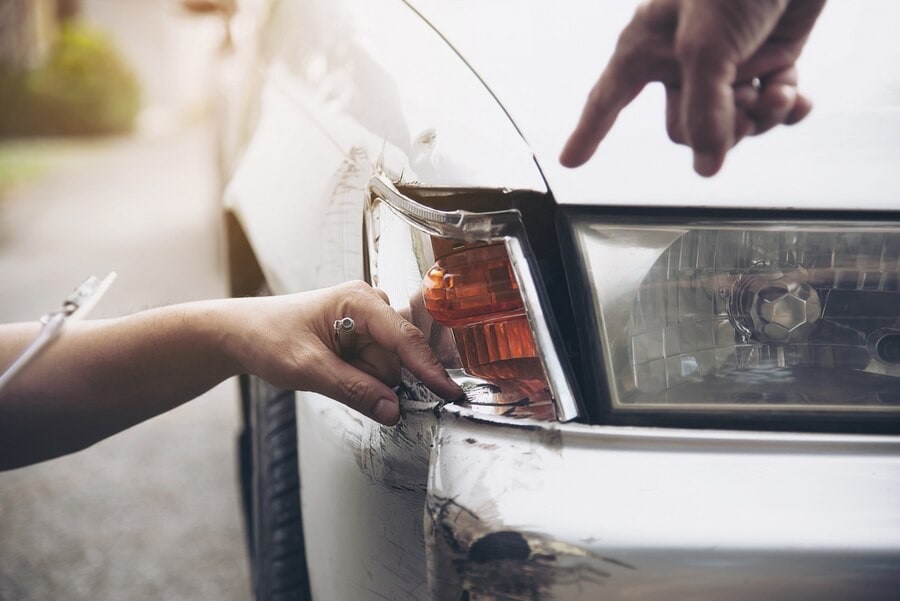
Imagine you find yourself in a minor fender bender, exchanging contact information with the other driver, surveying the damage to your car, and contemplating the next steps. In such moments, the question may arise: Is settling a car accident privately in Nevada legal? Should you handle your car accident without involving your auto insurance company? What factors should you consider before making this decision? This comprehensive guide delves into the legal intricacies surrounding private settlements for car accidents in the Silver State.
Understanding the Legal Landscape
Car Accident Laws in Nevada
Before delving into the nitty-gritty of settling a car accident privately, it’s crucial to understand the legal framework governing car accidents in Nevada. In the aftermath of a collision, certain steps are mandated by law. These typically include exchanging contact information, reporting the incident to the police, getting a police report and seeking medical attention if necessary.
Nevada follows the at-fault system, meaning the responsible party’s insurance primarily covers damages. However, this doesn’t necessarily prohibit private settlements. It’s essential to navigate this legal landscape with caution and awareness.
Should You Handle Your Car Accident Without Involving Insurance?
When to Consider Settling Without Insurance
The decision to settle a car accident privately hinges on various factors. One key consideration is the extent of the damage. In cases of minor fender benders or accidents resulting in only minor damage to one or both vehicles, individuals might contemplate handling the matter without involving insurance.
Other scenarios where settling privately may be contemplated include:
Minor Car Accident: If the damage is only cosmetic and doesn’t significantly affect the vehicle’s functionality.
Only Property Damage: In cases where the accident only resulted in damage to property (vehicles) and not personal injuries.
Both Parties Agree: If both parties involved in the accident agree to settle the matter privately and are willing to exchange information and possibly repair bills.
No Personal Injuries: If the accident did not cause any personal injuries, and both parties are willing to exchange information and agree on a resolution.
Is it Legal to Settle Car Accident Privately in Nevada?
Yes, settling a car accident privately in Nevada is generally legal. Private settlements involve both parties agreeing on compensation for damages without involving insurance companies or legal proceedings. However, caution is advised, as settling privately may pose risks, such as potential disputes and the absence of legal protections. It’s essential to assess the extent of damages, consider hidden injuries, and weigh the willingness of all parties to adhere to the agreement.
Consulting with an experienced car accident lawyer can provide valuable guidance in navigating the legal nuances of private settlements and ensuring your rights are protected.
How to Settle Without Insurance
Navigating the Process
If you find yourself contemplating settling a car accident privately, certain steps can guide you through the process:
Exchange Information: As in any accident, exchange contact information, insurance details (if available), driver’s license numbers, and any other relevant details with the other party involved.
Assess the Damage: Evaluate the extent of the damage to your vehicle and obtain repair estimates from a reputable auto repair specialist.
Negotiate a Settlement: Communicate with the other party to negotiate a fair settlement. This might involve agreeing on a specific amount to cover repair costs or other damages.
Document the Agreement: Once an agreement is reached, document it in writing. A legally binding contract should outline the terms of the settlement, including the amount, responsibilities of each party, and any other pertinent details.
Exchange Cash or Arrange Payment: Depending on the agreement, exchange the agreed-upon amount in cash or arrange for payment through a secure method.
Retain Documentation: Keep copies of all relevant documents, including the written agreement, repair bills, and any communication related to the settlement.
Why You Should Not Settle a Car Accident Privately
While settling a car accident privately may seem like a quick and straightforward solution, it’s essential to be aware of the pitfalls and reasons why this might not be the best course of action.
Hidden Injuries: Some injuries may not manifest immediately after an accident. Settling privately risks overlooking potential injuries that could emerge later, leaving you without recourse.
Legal Repercussions: Private settlements may not provide legal protection like formal insurance claims. If disputes arise, enforcing a private agreement can be challenging.
Future Claim Limitations: By settling privately, you may limit your ability to file a future insurance claim, especially if you discover additional damages or injuries after the fact.
Things to Consider Before Settling Your Car Accident Privately
Risks You Take by Settling Privately if You’re Not the At-Fault Driver
If you are not at fault in a car accident, settling privately introduces additional risks. Consider the following factors before opting for a private settlement:
Insurance Coverage Gaps: The at-fault party may not fulfill their financial obligations as agreed, leaving you without the means to cover repair costs or medical bills.
Potential for Disputes: Private settlements rely heavily on trust. If disputes arise, enforcing the agreement may require legal action, adding complexity and costs to the resolution process.
Impact on Insurance Rates: Even if you’re not at fault, settling privately might impact your future auto insurance rates. Insurance companies may view the incident as a potential risk, leading to higher premiums.
Legal Protections: Insurance companies provide legal protection and support in disputes. By bypassing the formal insurance process, you forfeit these protections.
Why You Might Want to Settle Privately Even if You’re Not At-Fault
Despite the risks, there are scenarios where settling privately, even as the not-at-fault party, might be considered:
Quick Resolution: Private settlements often offer a faster resolution than navigating the car accident claim process, which can be time-consuming.
Avoiding Premium Increases: By settling privately, you may avoid potential increases in your insurance premiums, especially if the at-fault party is willing to cover all damages.
Preserving Relationships: In minor accidents involving friends, family, or neighbors, settling privately might preserve relationships by avoiding the involvement of insurance companies.
Simplified Process: A private settlement can streamline the resolution process for cases with straightforward damages and cooperative parties.
How an Attorney Can Help in Settling Your Car Accident Privately
Seeking the assistance of an experienced car accident attorney is crucial when considering settling a car accident privately in Nevada. Here’s a brief overview of how an attorney can be instrumental in this scenario:
Legal Expertise: Attorneys deeply understand Nevada’s car accident laws, ensuring your decisions align with state regulations.
Assessment of Damages: They help assess damages comprehensively, working with specialists to consider all present and potential future costs.
Negotiation Skills: Skilled negotiators and attorneys can represent your interests effectively, ensuring equitable and comprehensive settlement terms.
Legal Protection: Attorneys draft legally binding agreements to provide you with the necessary legal protections, especially in the absence of formal insurance claims.
Evaluation of Insurance Options: They can guide you on insurance options, even if you opt for a private settlement.
Representation in Disputes: In case of disputes, attorneys can guide you through negotiation, mediation, or litigation.
Preserving Evidence: Attorneys understand the importance of preserving evidence and guide you on collecting and documenting it effectively.
Advising on Risks and Benefits: Attorneys provide personalized advice based on your situation, helping you weigh the risks and benefits.

Explore Your Legal Options with BLG
In conclusion, whether it is legal to settle a car accident privately in Nevada involves a nuanced consideration of various factors. While private settlements can offer quick resolutions and certain advantages, they have inherent risks and potential legal pitfalls. Before deciding to settle privately, carefully assess the extent of the damages, potential hidden injuries, and the willingness of all parties to adhere to the agreement.
If you find yourself grappling with this decision, seeking the guidance of an experienced car accident lawyer can provide invaluable insights. Law offices specializing in car accidents can offer a free consultation to help you understand your rights, assess the viability of a private settlement, and navigate the legal intricacies of your specific case.
Navigating the legal intricacies of settling a car accident privately can be complex. At BLG, our experienced team is here to guide you through the process, ensuring your rights are protected every step of the way.
Schedule your free consultation today!
FAQs
What does it mean to settle privately?
Settling privately typically refers to resolving a dispute or claim without involving external parties, such as a court or insurance company. For example, if you’re in a car accident and both parties agree to settle the damages without involving insurance or legal proceedings, that would settle privately.
Should you always go through insurance?
Whether you should go through insurance depends on the circumstances of the situation. In many cases, involving insurance is advisable, especially for significant damages or injuries. Insurance provides a formal process for handling claims and can help protect you from financial liabilities. However, settling privately may be an option for minor incidents where the cost of repairs is lower than your deductible or the impact is minimal.
How do you negotiate a cash settlement with an insurance company?
Negotiating a cash settlement with an insurance company involves understanding your policy, documenting damages at the accident scene, and determining a fair amount. Initiate contact, present your case with supporting documents, and be prepared to negotiate. Highlight the strengths of your case, consider professional assistance if needed, and ensure the settlement terms are in writing before signing. If uncertain, seek legal advice for guidance.
Do you get excess back if it’s not your fault?
In insurance terms, “excess” typically refers to the amount you must pay out of pocket before your insurance coverage kicks in. If the accident is not your fault and the other party is found responsible, you may be able to recover your excess from the at-fault party’s insurance. This process may involve filing a claim with the at-fault party’s insurance company and providing evidence to support your case.





